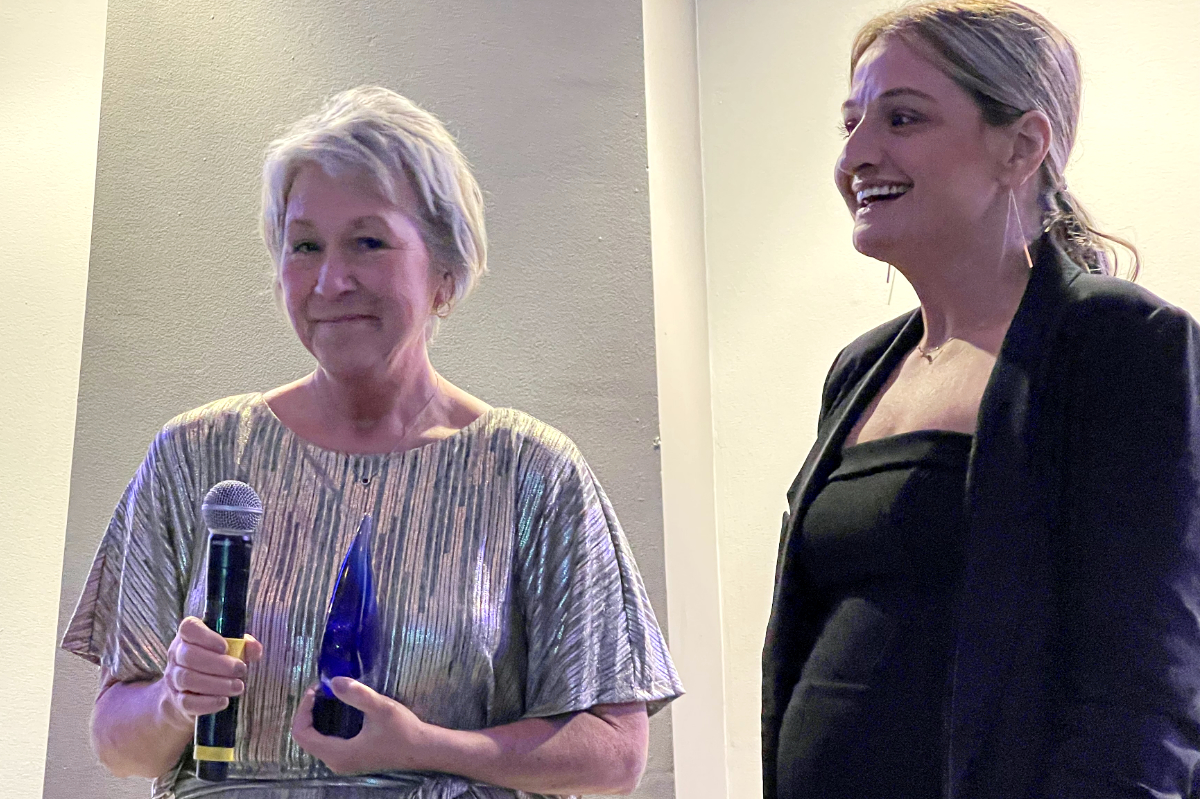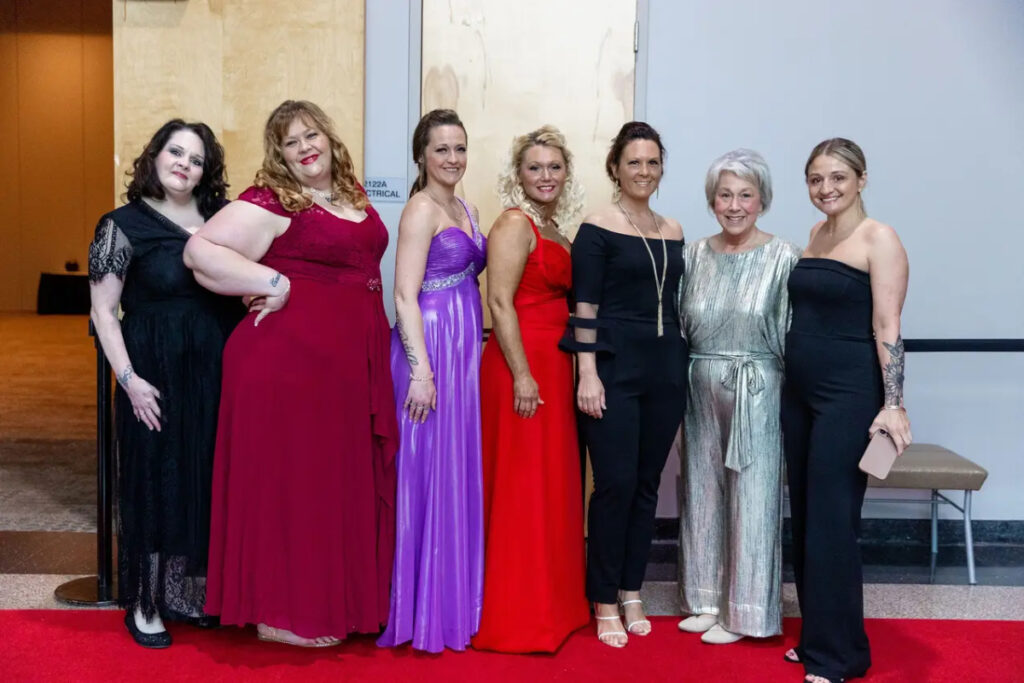Becky Weatherford started drinking alcohol when she was 15 years old. She was a “full-blown” alcoholic by 23, but it was not until she was 40 that she entered a drug and alcohol treatment center, she told the Mississippi Free Press last month.
Now 55, Weatherford runs Talbot House in Tupelo, Miss., where women finishing a drug and alcohol treatment program can stay “in a supportive living environment” and move toward “independent sober living,” the organization says on its website.
“I’m just grateful that I can help other people navigate their (recovery),” Weatherford said in an April 24 interview with the Mississippi Free Press. Tupelo is in Lee County, located in northern Mississippi.
The Mississippi Center for Re-Entry honored Talbot House at its Disrupting the Cycle Gala in Southaven, Miss., on April 8 with the Outstanding Community Partner Award.
“Anytime we need housing for someone, we call them, and they will place them,” Mississippi Center for Re-Entry founder Cynetra Freeman told the Mississippi Free Press after the event.
Origin of Talbot House
Becky Weatherford grew up in a “normal” two-parent household and “did well in school,” she told the Mississippi Free Press.
She got sober on May 18, 2008.
“I (later) found myself working with women in a treatment facility back in 2014, and the women I was working with didn’t have safe housing to go to once they left treatment,” she said.

While men leaving the treatment center she worked at had seven different transitional facilities they could go to after treatment in the Lee County area, no such option existed for women nine years ago, Weatherford said.
“So I just said a prayer one day. I didn’t know it was a prayer. I just told God that these ladies needed somewhere to go, and I guess he thought that that was me asking to do it,” she explained. “So 2015 is when Talbot House opened its doors as a sober living home for women.”
People from alcohol and drug treatment programs may need a place to stay if their home is not a sober or supportive environment, nonprofit comprehensive behavioral health-care provider Hazelden Betty Ford Foundation says. One such option is a sober living home like the one Talbot House offers.
Residential recovery homes are a good option for many individuals because they provide an abstinent living environment and peer recovery support, four California researchers reported in a paper in January.
One of the earliest residents of Talbot House messaged Weatherford last month, grateful for her experience at the facility.
“I’m not sure if you remember me, but I remember you and the Talbot House, and it makes me so happy to see it thriving. I apologize for 18-year-old me, but I wish you could see me now at 26,” the unnamed former resident wrote. “Thank you for helping plant the seeds I needed to grow.”
‘Recovery Takes Time’
Weatherford said Talbot House has helped many women who do not have a safe home to return to after treatment, “especially women who had children in the foster-care system” while providing life skills development.
“Although there weren’t any in the North Mississippi area, there were some housing options for women between Jackson and the Mississippi Coast, or the options were to go out of state,” she said. “And if your children are in a foster-care system, part of the reunification process is to have regular visitation.”
“If your children are in north Mississippi and your housing is down on the coast, it’s very difficult to satisfy the requirements of visitation with your children,” she added. “So there was a need not only for the women with children in foster care but for many other women, just to have a safe place to rest their head at night, where the people around them were not using drugs or doing illegal activities or having strangers in and out of the house all day and night.”

Since 2015, around 200 women have passed through the Talbot House from domestic violence shelters, alcohol and drug programs in prison, or other recovery programs. Most are from Mississippi, but a few are from outside the state.
Each stays for about 10 months, with some there as long as two years, leaving only when they feel they are ready. Residents are required to get employed, cook their own meals, do their own housekeeping, go to recovery meetings and work with a sponsor or mentor. Talbot House has a zero-tolerance policy for violence and drug or alcohol use on the property.
Many residents have pasts with alcohol, heroin or methamphetamine addictions, but Weatherford said she has noticed a recent trend among the women who come to Talbot House.
“We’ve always had a lot of residents who are in recovery from methamphetamine addiction, and just over the past three to four years, we’ve seen a much larger increase of women coming through the program who are trying to beat heroin and fentanyl addictions,” she said.
The women in Talbot House are “all doing some incredible things,” she added.
“It’s a safe place to have a bad day, it’s a safe place to have a good day because good days can be as triggering as bad days sometimes,” she said. “We’ve celebrated milestones with women who have gotten a driver’s license for the very first time in their life, or they’re working for the first time. We see women who reunite with their children and their families, but it takes time; that doesn’t happen the minute you walk out of treatment.”
She said the facility has a bakery and café as well as a commercial production kitchen where the women gain temporary employment “until they’re comfortable to go out into the community for more permanent employment.”
Drug and alcohol treatment programs last for about 30 days, “sometimes 45 days long,” but they are not enough, Weatherford said.
“And there’s a misconception that if you go to a treatment program when you come back out, you’re going to be fixed; you’re going to know how to navigate the world, you’re going to know how to pay your bills, you’re going to know how to get a job, you’re going to know how to do everything that you weren’t capable of doing before, and that is just not the case,” she said.
“Recovery takes time, and insurance companies don’t pay for extended care, they just don’t, so being able to go into a sober living environment with like-minded people to learn how to navigate the world when you’re not under the influence is such an important part of that journey.”










